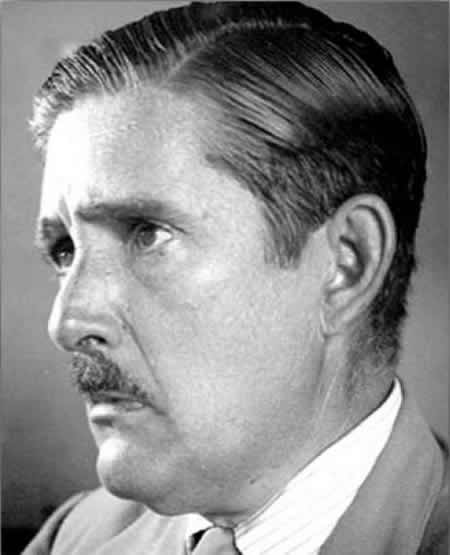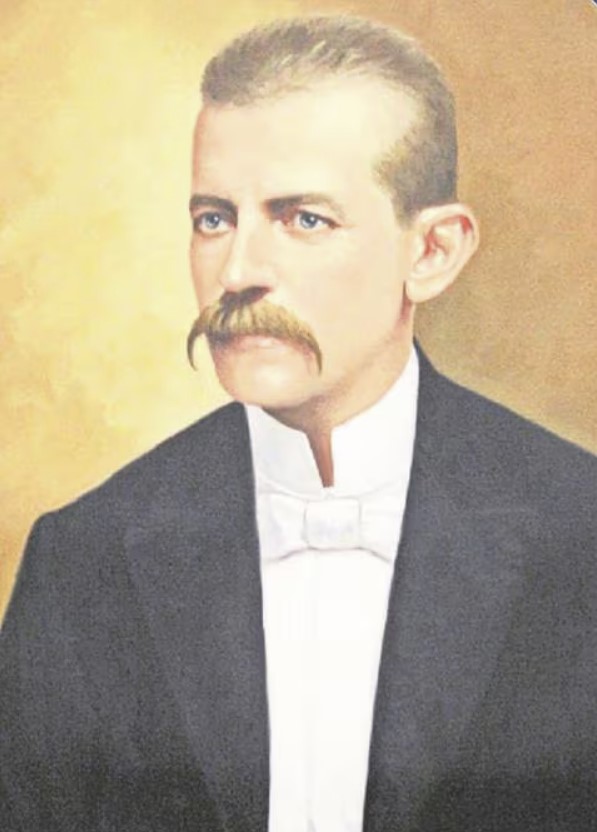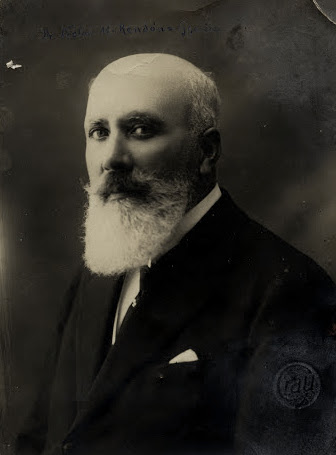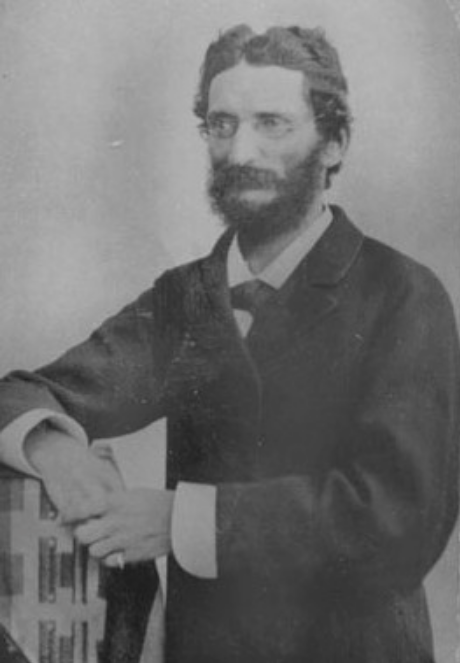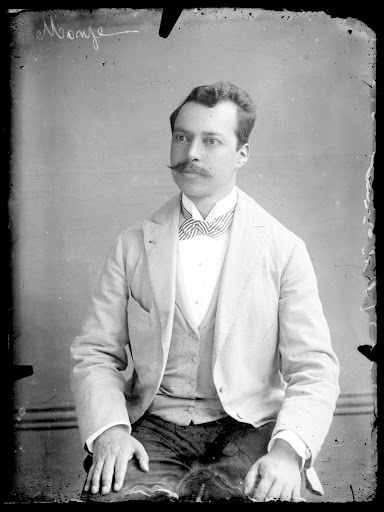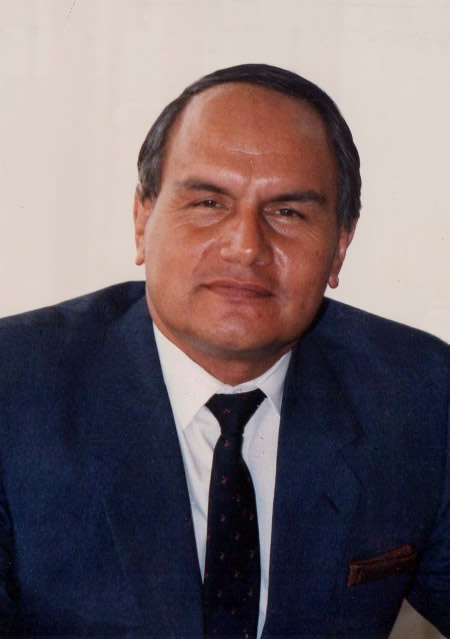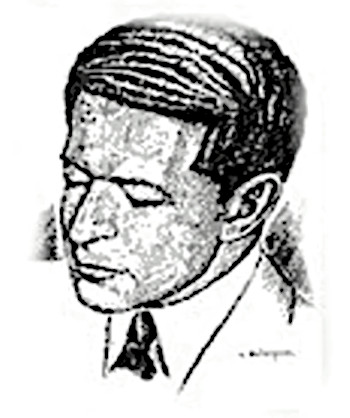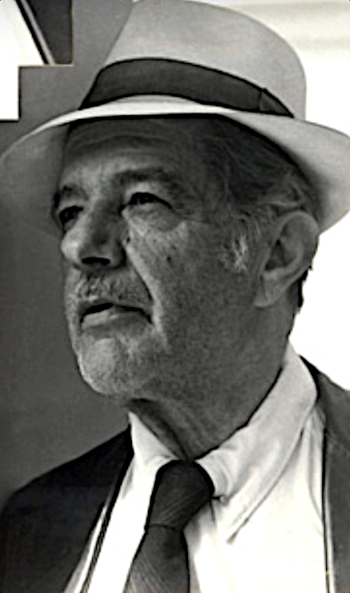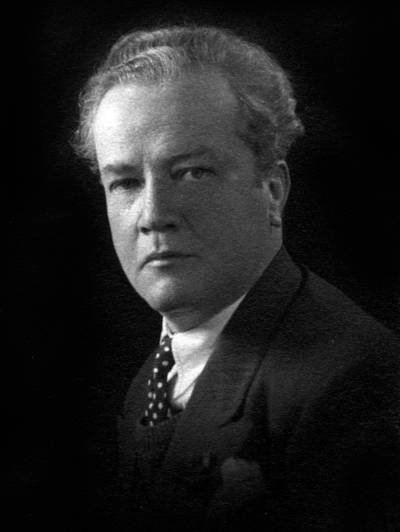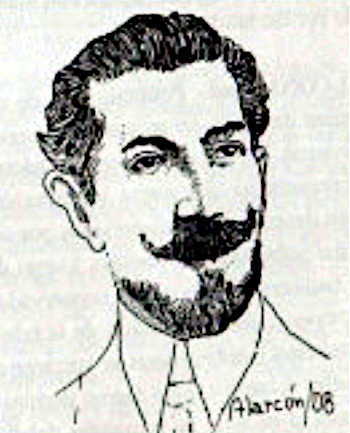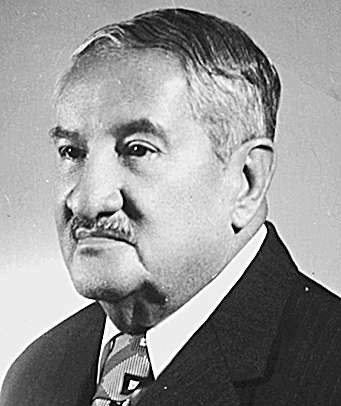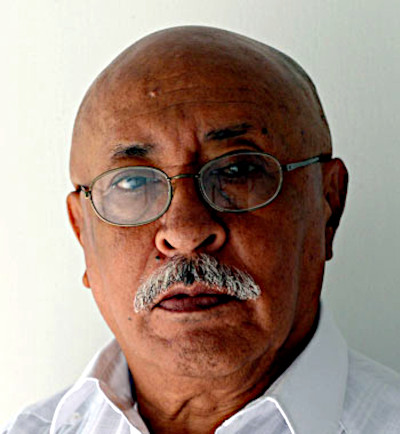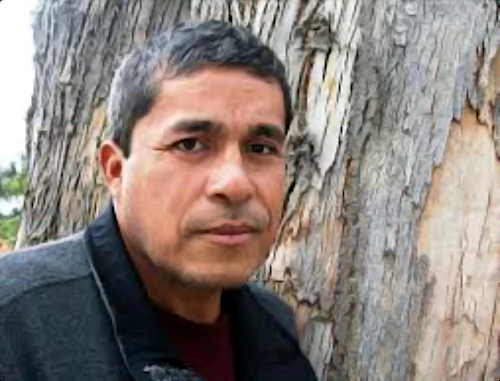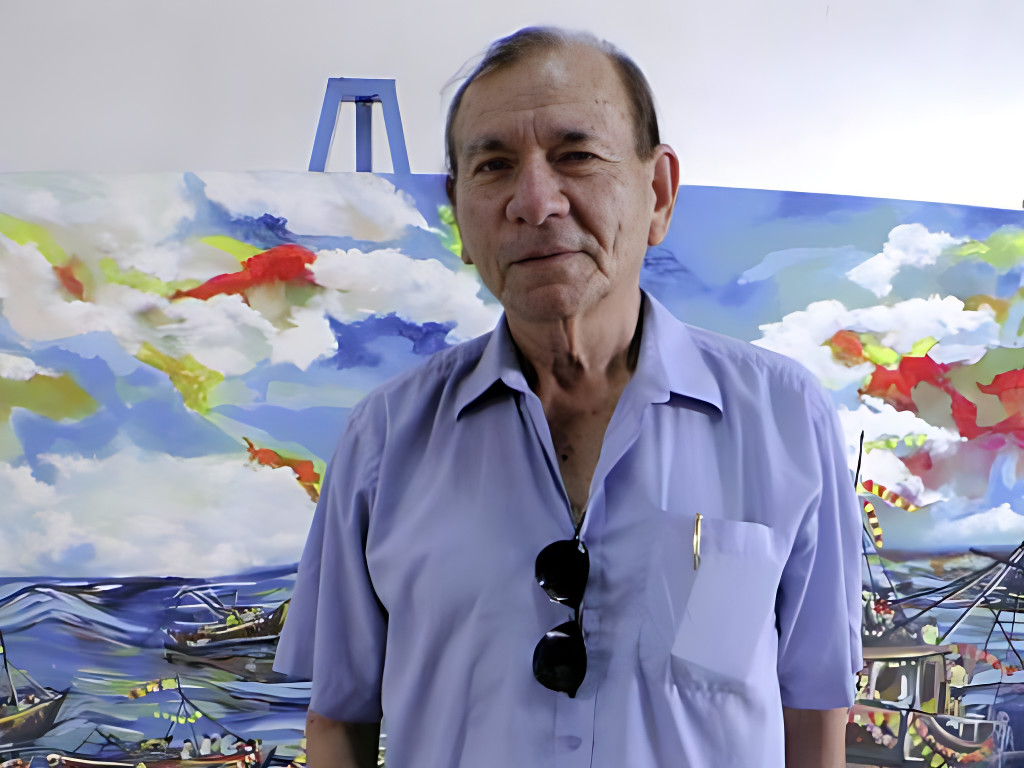José Joaquín Pino de Ycaza (Guayaquil, January 30, 1902 – Guayaquil, February 25, 1959) was an Ecuadorian poet, educator, historian and politician. Since as early as 14 years old he began publishing his poems in national literary magazines such as Patria and Helios, and later also in Juventud (Quito) and Proteos (Guayaquil). He directed the magazine Hermes, which published the most prominent early 20th century poets of Ecuador, such as Wenceslao Pareja, Miguel E. Neira, José Antonio Falconí, and his friend Medardo Angel Silva. In 1984 the Guayas branch of the House of Ecuadorian Culture published a collection of his poems in a small book entitled “Sándalo.”
Continue reading “José Joaquín Pino de Ycaza”Category: 20th Century Writers
Camilo Destruge
Camilo Destruge Illingworth (Guayaquil, October 20, 1863 – Guayaquil, February 26, 1929) was an Ecuadorian historian, journalist, and chronicler. He served as the first director of the Museo Municipal de Guayaquil, where he helped preserve the city’s historical artifacts, and he also directed the Municipal Library for many years. Destruge authored numerous historical works, including La Entrevista de Bolívar y San Martín (1918) and the five-volume Álbum Biográfico Ecuatoriano (1903–1905). He contributed to and edited various newspapers, such as El Telégrafo and La Nación. A member of the National Academy of History, he was also honored by the Venezuelan government with the Orden del Libertador. Declared “Cronista Emérito de la Ciudad” (Honorary Chronicler of the City), Destruge’s legacy is commemorated through a historical institution, a school, and a street named after him in Guayaquil.
Continue reading “Camilo Destruge”Víctor Manuel Rendón
Víctor Manuel Rendón Pérez (Guayaquil, December 5, 1859 – Guayaquil, October 9, 1940) was an Ecuadorian writer, poet, novelist, playwright, biographer, translator, doctor, diplomat, pianist, and composer. He wrote the novel Lorenzo Cilda in 1906 in French, later translating it into Spanish; in 1921, he was accepted into the Ecuadorian Academy of Language, and in 1925, the Académie Française awarded him a Gold Medal for the work. Rendón translated numerous works, including Olmedo, homme d’état et poète américain, chantre de Bolívar (1905), a French-language work combining a biography of José Joaquín de Olmedo with Rendón’s translations of Olmedo’s poetry. Fluent in four languages, Rendón published over forty books in Spanish and French, with works released in France, Spain, Belgium, Italy, Portugal, and Ecuador.
Continue reading “Víctor Manuel Rendón”Quintiliano Sánchez
Quintiliano Sánchez Rendón (Quito, April 13, 1848 – Ibidem, July 24, 1925) was a prominent literary figure in Ecuador, known for his contributions as a poet, novelist, journalist, translator, grammarian, and educator. His critical stance against the government of General Ignacio de Veintemilla, his directorship of the Ecuadorian Academy of Language, and his dedication to literature and education left a lasting impact. Through his captivating works, such as the novel “Amar con desobediencia,” his notable poetry like “Oda al Chimborazo,” and his translations of Latin classics, Sánchez Rendón demonstrated his artistic talent and linguistic prowess. His involvement in journalism and the founding of newspapers, along with his role as an influential teacher, further exemplified his multifaceted influence in shaping Ecuadorian literature and intellectual discourse.
Continue reading “Quintiliano Sánchez”Celiano Monge
Celiano Monge Navarrete (Ambato, December 15, 1856 – Quito, November 21, 1940) was an Ecuadorian poet, historiographer, journalist, politician, educator, and founder of various newspapers. He taught philosophy, rhetoric, mathematics and experimental physics in schools in Quito, Latacunga and Ambato. He occupied important positions within the teaching profession: he was the Director of Education of the Tungurahua and Pichincha Provinces; and later he was appointed Member of the Superior Council of Public Education. He was the secretary of the Ecuadorian Academy of Language and the director of the National Academy of History. In 1939 Monge was named “Ambato’s favorite son and official chronicler.”
Continue reading “Celiano Monge”León Vieira
León Vieira Villafuerte (Baños, October 24, 1940) is an Ecuadorian poet, novelist, biographer, journalist, painter, and teaching professor. He’s lived in Guayaquil for many years where he’s taught at various teaching schools and universities and has directed various magazines. He’s also been the vice rector of the School of Fine Arts in Guayaquil and served as Regional Undersecretary of Education. In 2016, Vieira was decorated with the Juan Montalvo Medal by the city of Ambato for his academic and literary work. His novel El doctor Jehova (1976) was a finalist of the 1972 Seix Barral Award.
Continue reading “León Vieira”Ramón Burbano Cuesta
Ramón Burbano Cuesta was an Ecuadorian poet. In 1982 he published, “Arena removida : relatos y prosa poetica.”
Continue reading “Ramón Burbano Cuesta”Alfonso Cuesta y Cuesta
Alfonso Cuesta y Cuesta (Cuenca, Ecuador, 1912 – Mérida, Venezuela, 1991) was an Ecuadorian novelist, short story writer, poet and university professor. At the Central University of Venezuela he studied law, philosophy and literature, later earning postgraduate degrees in Santiago, Chile and Madrid, Spain. He taught high school level when he returned to Cuenca, and later became rector of the prestigious Benigno Malo School. Around this time, he became known as a writer and formed the Elán group. His first poetry book was Motivos nuestro (1930) and his first book of short stories was Llegada de todos los trenes del mundo (1932), for which he is recognized as one of the best representatives of the indigenist movement in early 20th century Ecuadorian literature. In 1940 Cuesta again left Ecuador and moved to Caracas, Venezuela to teach at the high school named Liceo Fermín Toro, from there he went on to teach at the Central University of Venezuela, he also chaired the literature department at the Faculty of Philosophy and Letters of the University of the Andes.
Continue reading “Alfonso Cuesta y Cuesta”Arturo Cuesta Heredia
Arturo Cuesta Heredia (Azogues, August 18, 1922 – Cuenca, November 12, 2006) was an Ecuadorian lawyer, judge, writer and avant-garde poet. He obtained a law degree from the University of Cuenca in 1947. Cuesta is a member of the “ELAN group.” As a young writer he was often called, “the metaphor magician,” for his brilliant use of metaphors. His poetry book “Hermano Miguel” (1963) has been translated into various languages including Polish. Cuesta also wrote fiction, such as his short story book El callejón de los eucaliptos (1962). In 2002, the Ministry of Education and Culture awarded him the Cultural Merit Award.
Continue reading “Arturo Cuesta Heredia”Wenceslao Pareja
Dr. Wenceslao Pareja y Pareja (Guayaquil, September 1, 1880 – Quito, February 26, 1947) was an Ecuadorian doctor, medical researcher, writer and poet. As a doctor, he was one of the world’s leading experts on yellow fever, and was nominated for a joint Nobel Prize in Science for his research work with Hideyo Noguchi. Pareja published 4 books of poems. His 1912 polemic poem “Exodo,” which was published in El Guante magazine, is among the first poems to introduce modernismo in Ecuador. Pareja’s poem “La voz del río” from his first book, Voces Lejanas y otros poemas (1915), best exemplifies modernismo in his poems.
Continue reading “Wenceslao Pareja”Aurelio Falconí
Aurelio Falconí Zamora (Cojitambo, Cañar Province, March 18, 1885 – Guayaquil, August 6, 1970) was an Ecuadorian writer, poet, diplomat and teacher. Falconí was one of the initiators of modernismo in Ecuador, and along with his friends Julio E. Rueda and Luis F. Veloz, founded Altos Relieves, one of the first magazines to publish young poets influenced by modernismo. His poetry book, “Policromía” (1907), exemplifies modernismo in early 20th century Ecuadorian literature. For some years Falconí taught Spanish, literature and history at the Vicente Rocafuerte National School. He later taught Greek mythology and wrote a school text book on the subject entitled “Tratado de mitología griega y romana” (1933). He later stopped writing poetry to focus on painting.
Continue reading “Aurelio Falconí”Abel Romeo Castillo
Abel Romeo Castillo y Castillo (Guayaquil, January, 22 1904 – Guayaquil, November 11, 1996) was an Ecuadorian writer, historian, biographer, journalist and poet. He was the son of José Abel Castillo Albornoz, the former owner of the newspaper El Telégrafo. Castillo earned a doctoral degree in history in 1931 from the Central University of Madrid, Spain. Among his more notable books are his biographical works on Medardo Ángel Silva, Aurora Estrada i Ayala and José Joaquín de Olmedo, to name a few. His poems “Romance de mi destino” and “Romance criollo de la niña guayaquileña,” were turned into popular pasillo songs. Castillo was one of the founders of the Society of Independent Artists and Writers, and of the Guayas branch of the House of Ecuadorian Culture. Castillo was a member of the Ecuadorian Academies of Language and History.
Continue reading “Abel Romeo Castillo”Edwin Ulloa Arellano
Edwin Ulloa Arellano (Riobamba, 1947) is an Ecuadorian poet, novelist, short story writer, journalist, psychologist and retired university professor. Ulloa has lived in Guayaquil since adolescence. He was an official of the House of Ecuadorian Culture in Guayaquil. His books include Sobre una tumba una rumba (1992, short stories), La sombra de tu sonrisa (2014, poetry), Polvo de Ángel (2010, novel). He has worked as the general editor of the ANDES State News Agency, Diario Expreso, and La Otra Magazine, and as the director of the newspaper El Telégrafo.
Continue reading “Edwin Ulloa Arellano”Pedro Gil Flores
Pedro Gil Flores (Manta, May, 18, 1971 – January 22, 2022) was an Ecuadorian poet and short story writer. He published his first book of poems at the age of 17, Paren la Guerra que yo no juego (1988), followed by Delirium Tremens (1993), Con unas arrugas en la sangre (1997), He llevado una vida feliz (2001) Sano Juicio (2003), 17 Puñaladas no son nada (2010) and Crónico, Poemas del Siquiátrico Sagrado Corazón (2012). In 2014 Gil published a book of short stories titled El príncipe de los canallas (2o14). He has directed a writing workshop at the Eloy Alfaro Lay University of Manabí (ULEAM). He was called the “Ecuadorian Rimbaud” by the literary historian Hernán Rodríguez Castelo. He coordinated the poetry workshop of the Portoviejo branch of the House of Ecuadorian Culture.
Continue reading “Pedro Gil Flores”Vicente Espinales Tejena
Vicente Espinales Tejena (Portoviejo, June 28, 1939) is an Ecuadorian poet, physician, lawyer, and cultural leader from Manabí. Best known for his poetry that celebrates the landscapes and people of his native region, Espinales gained national recognition after winning the Ismael Pérez Pazmiño Poetry Prize at the age of 20. Over the years, he has published numerous collections, including “Febrero” (1972) and “El Gorrión Regresa por sus Alas” (2001), solidifying his place in Ecuadorian literature. He has also served as President of the Casa de la Cultura Ecuatoriana, Núcleo de Manabí, contributing significantly to the promotion of arts and culture in the region.
Continue reading “Vicente Espinales Tejena”
